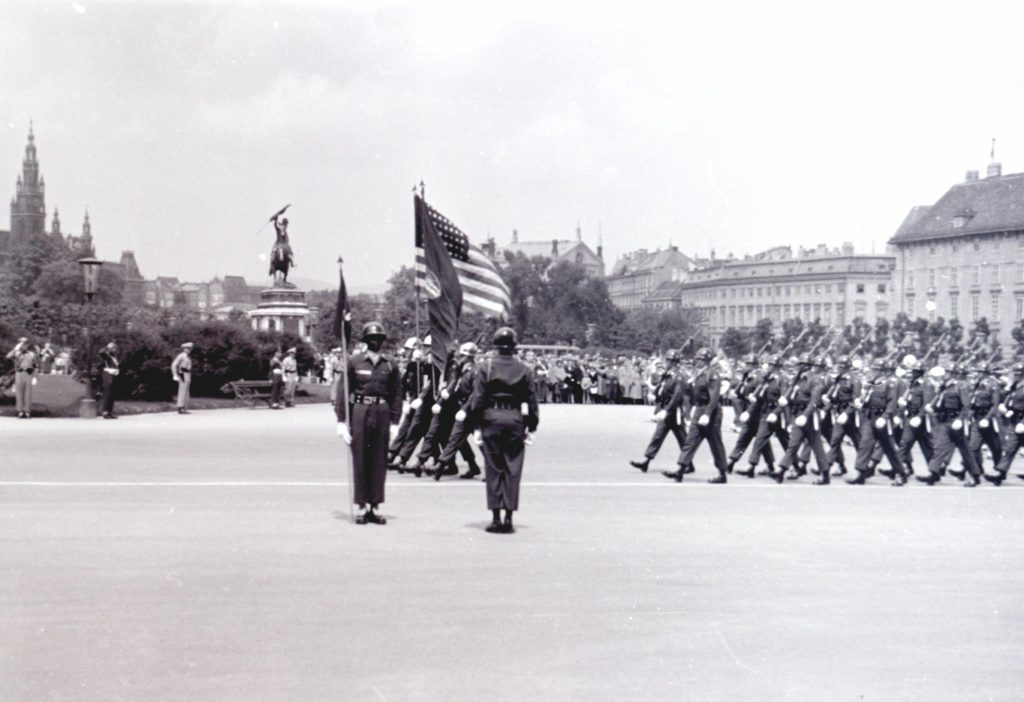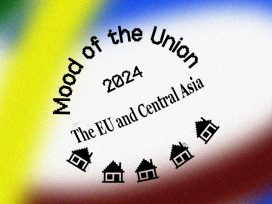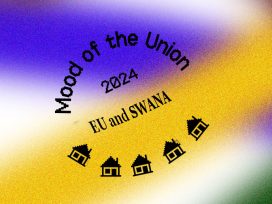1.
Beyond the current debate on false news, there exists a strong need to distinguish rigorously between fact and fiction, between truth and lies. It seems to be an ethical imperative that goes hand in hand with our insistence on being honest. The opposite already occurs in the Ten Commandments: thou shalt not bear false witness against thy neighbour, runs an old translation of the Bible. To lie is to disrespect others and is a social offence.
But what if fact and fiction cannot be so easily distinguished? What about the truth of literature and art, which live in fiction and play, and transport their audience to another world? What happens when we believe ‘false witness’ ourselves? Could it be, perhaps, that crooked truths are transformed into higher truths through the repetition of fictitious statements based on wish fulfillment, justification or convenient exoneration?
One possible way to characterize myths, old as well as new, is that they do not recognize the separation of fact and fiction – or rather, that they circumvent it. What’s more, we never argue just about facts, but also about their meaning and value.
In modern falsification, myth survives as pseudo-factual reality, solidified, as Roland Barthes wrote in Mythologies, into second nature. Myth also survives beyond the religious because, as Hans Blumenberg said, it generates significance and protects us against the ‘absolutism’ of a mute but overwhelming reality. Far beyond the factual, it is ‘the art of giving meaning to the meaningless’, as Theodor Lessing called it – en miniature but also on a grand scale. We can see this as the media magnifies the cult of stardom, sport and games; an outsized narrative panorama without which the invention of nation, the process of nation-building, would be unthinkable.
The nation is the most durable, radical and influential fiction. It is proof that myth remains inescapable even in an enlightened, scientistic world, and that the story of cultural progress may itself be a myth that does not stand up to critical examination.
Take the well-known image of the Austrian foreign minister, Leopold Figl, standing on the balcony of the Belvedere in Vienna in 1955, waving the State Treaty and shouting, ‘Austria is free!’ Strictly speaking the image is a fake: the event never actually took place, as the historian Ernst Bruckmüller convincingly showed on the fiftieth anniversary of the event. But the photograph serves a ‘higher’, symbolic truth, in other words a myth. In fact, it could be said to have anticipated the subsequent mythologization. The image creates a narrative context: the statesman on the stage before his people.
The Austrian nation-building process is so interesting and so exemplary precisely because it was unplanned – a historical ‘accident’. Like other cases of nation-building and collective imaginations and fictions, it combines several different, overlapping myths: the Habsburg myth combines with those of the State Treaty, neutrality and the Zwentendorf affair (the nuclear power plant in Lower Austria, decommissioned after a referendum in 1978, leading to a ban on atomic energy the same year – ed.) to form a narrative whole.
Despite the heterogeneity of these national stories and their political contexts, they can be fitted together to create an image that contains almost all Austrian imaginaries: retrospective reconciliation, Europe, culture, security and peace, a green role-model. A Weltösterreich or ‘global Austria’, as Robert Musil referred to it under the Habsburg monarchy, but on a smaller scale. If only everyone were neutral and neutralized, and only used Russian gas instead of running evil nuclear power plants, the world would be fine. Such is the utopia of this little global Austria, with its UN building on the Danube, a monument of feigned grandeur, if nothing else.
The Habsburg myth, including the culture of Viennese modernism, can be told and understood as post-histoire, as the end of history and the promise of an almost completely neutral Europe in the future. After a long, weighty history of domination, little Austria has escaped its complicated past. The neutralization of all dangerous oppositions, and thus of history, fits into this perfectly.
In Austria, at least, Kant’s dream of perpetual world peace becomes reality in the shape of Stefan Zweig’s ‘world of security’ (the title of the first chapter of Zweig’s autobiography The World of Yesterday – ed.). By bidding farewell to nuclear power, a symbol of insecurity, little Austria, the great power of culture, offers its neighbours a gift for the future. Austria thus anticipates the future of Europe, if not the entire world. The only hitch is that no one seems to have noticed, or wants to take it seriously.
Recently there has been ample opportunity to study just how entrenched the myth of secure, permanent neutrality is in Austria. While other non-aligned states abandon their neutrality in the face of a war of aggression waged by a former superpower against an effectively neutral country, Austria is almost unanimous in invoking neutrality as a higher virtue. This is also an act of higher dishonesty, since we only take our neutrality this seriously when it suits us.
Confusing neutrality with peace, many ‘experts’ think that if Ukraine were to simply declare itself neutral and cede the territories annexed by Russia for the sake of peace, the problem would be solved – mainly, of course, for neutral Austria. Neutrality’s supposed effectiveness is propounded by Figl’s current successor, who puts on a show of shuttle diplomacy in step with more powerful international players, as befits a neutral country. This is one reason why he has unilaterally declared the neutrality discussion over, well aware that he need not expect resistance, except from the NEOS (a liberal opposition party – ed.). In fact, he can count on improved approval ratings. For an electorate that, for all the fuss about truth, wants to be fooled, Austrian neutrality seems set in stone.

US soldiers take part in changing of the guard in Vienna for the final time in July 1955. Source: Wikimedia Commons (author: Werner Rudolf)
2.
Reading up on the history of the State Treaty and Austrian neutrality, the non-specialist soon discovers a series of astonishing facts. Remarkably few recent studies touch on the events of that time, let alone reinterpret and contextualize them. Austria’s accession to the EU is the only post-independence occurrence to have provoked even a brief discussion about neutrality. Whether Russia’s war of aggression against non-aligned Ukraine will lead to a re-evaluation of the Austrian condition remains to be seen.
Another surprise is that the ‘struggle for the State Treaty’ lasted a full ten years, from 1945 to 1955. There was already a draft of the State Treaty in 1947, parts of which found their way into the 1955 legal text. This delay was due to both external, geopolitical causes as well as internal factors relating to Austria’s situation and history.
Stalin’s pact with Hitler and then his fight against the latter alongside the Western Allies ultimately extended Russia’s sphere of influence deep into central Europe. After Hitler’s defeat, the former allies very quickly became rivals, with the Warsaw Pact on one side and NATO on the other. Austria is the only part of the former Habsburg territory that never became part of the Soviet empire, or satellite system. The split between Tito and Stalin created further differentiation within that system, and Yugoslavia broke away from Moscow with no violent intervention by the Soviet Union. Nevertheless, for the first time in history, half of Europe became Russian occupied territory.
Like so much else to do with neutrality, the anti-American narrative of an aggressive transatlantic alliance, so popular on the left and sometimes also on the right, belongs to the realm of myth. This is clearly demonstrated by the caution with which the USA approached the negotiations over Austria’s future. The idea of maintaining equidistance to the Soviet Union and the USA is compatible with the myth of permanent neutrality. Like all myths, it is largely counterfactual.
One external reason for the seemingly endless negotiations over Austria’s statehood was the effective end of the alliance between the victors of World War II and the relocation of the theatre of operations to the Far East, where the USA and the Soviet Union were already engaged in a proxy war (China, Korea). This altered the group dynamics of the negotiations.
At the same time, comparison between the draft of 1947 and the signed treaty of 1955 shows that there was at least a shared framework, a minimum consensus, that Austria had to take into account: it included a prohibition against any union or close cooperation with its neighbour Germany; strict limitations on troop levels and military equipment; the granting of specific minority rights (instead of territory) to Slovenes and Croats; and compensation to the Soviet Union (river ferry fleet, crude oil in Lower Austria). The real adversary of the new Austria was not, in fact, the West, but the Soviet Union, whose new allies, its dependent satellite states, bordered directly on Austria.
Waiving any kind of ownership rights or payments, the western powers played a dual role. On one hand, they stood opposite occupied Austria as the victors’ alliance; on the other, they supported the country throughout the tough negotiations with the Russians. The western allies sometimes warned Austria not to be too accommodating to the Soviet Union. The coup d’état in Czechoslovakia (1948), which resulted in the loss of a former ally to Stalin’s sphere of influence, was important in in this respect.
The 1955 Declaration of Neutrality, authored under pressure from Moscow and issued after the State Treaty, was viewed ambivalently in the West. General Béthouart, High Commissioner and Commander-in-Chief of the French forces in Austria until 1950 and later a member of the French Senate put it as follows: ‘The neutralization of Austria tips the balance of power in favour of the Soviets in this sensitive region in Europe. It represents an undeniable strategic success for Soviet diplomacy’.
There were still other reasons for the interminable delay before the ratification of the State Treaty. Until an agreement could be reached with Moscow, the presence of western troops served to prevent a potential coup by the Russians. In secret meetings with the Soviets, the Communist Party of Austria, a member of the national unity government, had proposed separating the eastern part of the country and integrating it into the Soviet sphere of influence – under its leadership, of course. Moscow refused.
Another reason was that the Allies wanted to conclude peace treaties with Germany and its allies before finalizing the Treaty. A treaty with Germany never came to pass because of the post-war division of the country, but agreements were signed with Hitler’s allies: Hungary, Romania, Bulgaria and Italy. These also ruled on territorial questions (South Tyrol, Trieste) that were considered binding for the Austrian State Treaty. Historians largely agree that the inexperience and ineptitude of the Austrian delegation, led by Karl Gruber, were responsible for South Tyrol remaining part of Italy.
3.
For someone who normally reads literary texts with an eye for multiple meanings, it is interesting to note that legal texts also have their share of deliberate contradiction and ambiguity. In this case, this begins with the dispute over the name of the treaty itself, which reflects Austria’s ambivalent status and the various resulting narrative strands. The treaty could not be called a peace treaty, since Austria had been annexed by Germany, and had therefore never officially been at war with the victorious Allies. Moreover, all Allied documents since 1943 had repeatedly stressed that Austria was a victim of Hitler’s aggression and deserved to recover its statehood. Hence the neutral term ‘state treaty’ (Staatsvertrag), which was primarily pushed by the Austrian delegation.
Contradicting this exculpatory narrative is the fact that Austria, like Germany, was occupied by the victors of World War II and not treated as an equal partner. This situation was to change over the course of the marathon negotiations. The treaty contains numerous prohibitions, for example against union or close bilateral cooperation with Germany, as well as requirements including minority rights, the recognition of existing treaties (such as that with Italy confirming Austria’s legal renunciation of South Tyrol) and compulsory measures such as the combatting of National Socialism.
That many of these demands were morally justified does not alter the basic asymmetry of the relationship. Ultimately, Austria could have resolved all these issues on its own once it was a sovereign state. The economic demands, like the extraction of natural gas in Lower Austria or the transfer of ownership of the Danube steamboat company to the Soviet Union, also suggest a narrative of defeat and reparation.
There was also a fundamental contradiction between the military provisions of the State Treaty, which amounted to a thorough demilitarization, and the subsequent declaration of neutrality previously agreed with Moscow, without which the Soviet Union would evidently not have been prepared to sign the State Treaty or withdraw its troops from the east of occupied Austria. After all, any announcement of neutrality inevitably raises the question of whether it can be militarily guaranteed by the country proclaiming it.
This is especially true because all the Austrian delegation’s attempts to obtain a guarantee of the territorial integrity of the reconstructed state failed – whether due to a lack of geopolitical interest, in the case of the USA, or due to bitter experience, in the case of the United Kingdom. The latter’s official guarantee to Poland had forced it to enter the war after Hitler’s invasion of that country, something it had managed to avoid in the cases of Austria and Czechoslovakia. This is a recurring feature of western policy, as shown by the fate of Ukraine.
4.
Neutrality does not mean the absence of war. In fact, it is predicated on the possibility of war, if not its reality. Countries often have no choice to declare themselves neutral in the face of the dangers of military conflict. Which side poses the danger is clear in concrete cases. Under pressure from Moscow, Austria declared its neutrality in the hope of turning it against the very power that was demanding it.
Here too, there is a discrepancy between the State Treaty and the Declaration of Neutrality. The State Treaty was based on the idea of preventing future union between Austria and Germany, while neutrality presupposed the bipolar division between the West and the communist world. From the Soviet perspective, neutrality prevented Austria being politically and militarily integrated into the West; conversely, Austria calculated that it would provide protection against the real threat, the Soviet Union. The failure to achieve this protection through western guarantees was only inadequately compensated by the gradual creation of a set of security regulations (CSCE/OSCE) and the fact that Vienna was chosen as the site of the UN headquarters.
The idea that the proclamation and recognition of military neutrality will automatically lead to security is the product of myth. Neutrality, as the Austrian example makes plain, is not the outcome of free, sovereign action, but rather a reaction. The same is true of the unwillingly non-aligned Ukraine of the present day. Neutrality is the result of war and conflict and presupposes that two countries agree over the political status of a third. Although the Western Allies did reluctantly recognize Austria’s military neutrality, they had no intention of providing a territorial guarantee for the reconstructed state along with the Soviet Union.
Austria, which the USA had secretly provided with limited arms, thus had no external security guarantees and no army with which to defend its neutral status. The fact that neutral Austria survived the military occupations of Hungary in 1956 and Prague in 1968 is hardly compelling proof of the deterrent power of its neutrality. If either of the conflicts had spilled over, for example if the invaded countries had put up any military resistance, the western states would probably not have defended Austria militarily.
The governing logic of the Soviet Union, a ‘cold’ or static society according to Claude Levi-Strauss, was conservative, defensive and focused on maintaining the territory gained after 1945 in central and eastern Europe. In contrast, the Russian Federation of today is revisionist: it seeks to resurrect the old imperial dominance laid to rest in 1991. Its revisionist ambitions are restrained only by its economic and, to an extent, military weakness.
Neutrality is not a value. It does not, as the myth suggests, imply moral innocence. The occasional concessions made to Hitler by Switzerland and Sweden, for example, can be and are seen as morally problematic. In general, military neutrality precludes confronting a neighbouring aggressor. To remain neutral is let the aggressor carry on in the hope that you will avoid harm yourself. The logic of neutral diplomacy rules out taking sides, but also defending one’s own values as a civil democracy, including by force in exceptional circumstances.
Nor is neutrality necessarily pacifist. In the case of great powers that provisionally remain neutral (like India or China today), neutrality may be the outcome of a political and strategic calculation to play it safe and wait to see who wins. But the declaration of perpetual neutrality is misleading for smaller powers, too, because it unnecessarily restricts their already limited room for manoeuvre. In contrast to the neutrality of great powers, small political entities are all too easily crushed under the wheels of those with more military, economic and political power.
The fragile state of Belgium, itself the product of an internal neutralization, learnt this lesson the hard way twice during the twentieth century. Or, to take an example from antiquity, the inhabitants of the island of Melos gained nothing by making successive concessions to the two belligerents in the Peloponnesian War, Athens and Sparta. Neutral Melos was ultimately reduced to rubble and ash, its population, as Thucydides reports, slaughtered and enslaved. In a volatile situation, indecisiveness can be dangerous, even fatal.
In narrative terms, the Austrian myth of tried-and-tested neutrality is a typical significatio post festum. Geopolitically and legally, its neutrality is actually extremely weak. Politicians like Figl, Adolf Schärf or Bruno Kreisky got the best they could for their country in difficult situations. This is a considerable achievement. But it is patently absurd that Austria’s unprotected neutrality, this legacy of war, is something to be emulated, as the gateway to eternal peace. It never occurred to any of the eastern or central European countries that broke free of Soviet hegemony to declare themselves neutral, because the prerequisite for neutrality, the static coexistence of two stable blocs, was no longer in place.
Another detail that tends to be suppressed is the price of the neutrality negotiated with the Soviet Union: Austria’s peripheral status in the western world. For a long time, Austria’s politics and economy did not benefit from the new transnational European area, the EEC and later EU. Compared with western and northern Europe after 1945, Austria became a relatively backward country that only caught up with other similar nations after the collapse of the communist system and Austria’s integration into the European Union. It was not until it joined the EU that, thanks to its military cooperation with European NATO members within the EU, neutral Austria was able to enjoy the benefits of a mutual assistance agreement, albeit a relatively weak one compared with NATO. Put bluntly, it is not Austrian neutrality but NATO that guarantees peace in Europe, and even then only for the countries that are part of its structures.
History is not over. That myth is starting to disintegrate in the face of numerous global threats. Currently all that maintains it is the force of habit and the pious desire for self-deception. New options and perspectives are emerging in the wake of its implosion: self-defence and cooperation, participation in the construction of a European armed force. And, much more likely, admission to NATO, the only alliance with the strength to keep the peace. Austria is not immune to the changing times, but it has a tradition of holding onto long-established myths. It is, as Musil recognised, a cumbersome political entity.
What is over, however, is the period of programmatic postmodernism, with its tendency towards global neutralization, including of war itself. The myth of neutrality, this narrative web of illusions, pious desires and a whiff of provincialism, turns out to be a hindrance that means once again being a free rider at the supposedly safe peripheries of new political and military constellations. Nor does neutrality guarantee a seat at the political table in an arbitrating or moderating role. It is the interests of the powerful that determine who moderates a conflict.
The European security order, which also implied a project of mutual neutralization, has imploded since the invasion of Ukraine. We are entering a phase in which the democratic, human-rights-oriented world must confront authoritarian regimes that do not negotiate conflicts peacefully in the event of a crisis, that see a desire for peace as a sign of military impotence, and that embody the primacy of power politics. The western world must answer the fateful question of how to deal with powers that scorn its pacifist values and interpret them as weakness.
Post-communist China is watching the war in Ukraine closely. Its gaze is also trained on Taiwan. The age of neutralizations, as Carl Schmitt referred to it, is over. This does not necessarily mean, as Schmitt maintained, that authoritarian, nationalist and populist powers and forces will always ultimately prevail. The defeat of Hitler, Mussolini and all their associated worshippers of political violence is instructive and encouraging in this respect. After all, that defeat was brought about by two democracies, the United States and the United Kingdom.







